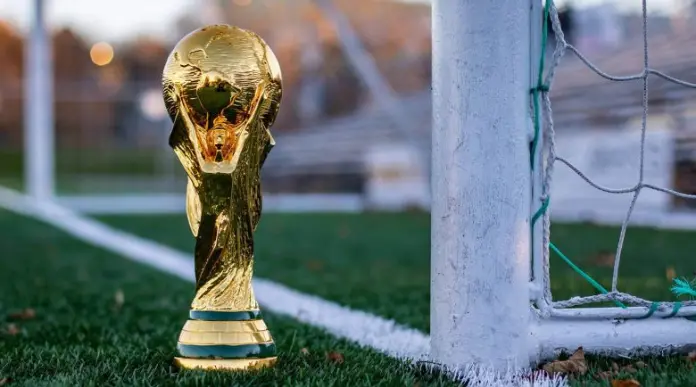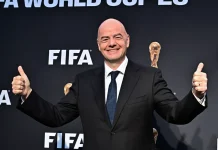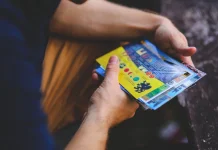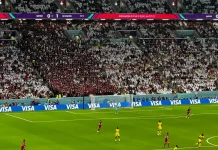In 2025, football has evolved beyond the pitch into a potent instrument of soft power, with FIFA at its core. As the world’s most popular sport, football transcends cultural and political boundaries, serving not just as a game but as a global diplomatic force. From hosting the World Cup to influencing narratives on human rights and international relations, FIFA’s role highlights both the promise and peril of football’s expanding political and cultural reach. This year’s critical examination of “Soft Power and FIFA: How Football is Used to Exert Cultural and Diplomatic Influence Worldwide” captures the complex interplay between sport, geopolitics, and global image-making.
FIFA as a Vehicle for National Influence
Global Events and Cultural Showcasing
Countries competing to host FIFA events do so not only for the economic benefits but also for the strategic opportunity to shape global perceptions. Mega-events like the FIFA World Cup serve as soft power platforms where nations display cultural heritage, economic strength, and political stability. For emerging powers, these tournaments act as a coming-of-age moment on the world stage—proof of their capability to organize global spectacles and signal geopolitical relevance.
Host nations often embark on large-scale branding campaigns around such events, showcasing national identity and promoting tourism. Infrastructure investments, cultural exhibitions, and diplomatic hospitality during FIFA tournaments are carefully orchestrated to create favorable impressions, foster bilateral relationships, and stimulate domestic pride.
Diplomacy in Jerseys
Beyond the stadiums, football diplomacy plays out in subtle but impactful ways. International matches, youth exchange programs, and sports development aid are increasingly used by countries as tools of foreign policy. Football opens doors to dialogue where formal politics may falter. In recent years, diplomatic efforts during FIFA-sanctioned events have helped thaw tensions between rival states, creating space for cultural exchange and mutual understanding.
FIFA, by organizing global fixtures and development programs across 211 member associations, acts as a facilitator of this cultural diplomacy. Its events draw the world’s attention, offering member states platforms to communicate values, narratives, and political positions—all under the banner of sport.
Sportswashing and Ethical Concerns
Image vs. Reality
Despite its ability to unite, football’s role in global affairs is not without controversy. The concept of “sportswashing”—the use of sporting events to obscure or soften criticism of human rights abuses and authoritarian governance—has gained prominence. Critics argue that some nations exploit the media spotlight of FIFA tournaments to present a sanitized national image while repressing dissent and neglecting rights behind the scenes.
Examples abound of host countries investing billions in stadiums and infrastructure while labor conditions, media freedom, and political pluralism remain under scrutiny. FIFA’s selection of host nations has repeatedly sparked criticism for ignoring these concerns, prompting calls for more rigorous ethical standards in the bidding process.
Corruption and Governance
Further complicating FIFA’s role as a soft power broker is its own history of governance failures. Corruption scandals surrounding World Cup bids and executive leadership have damaged the organization’s credibility. Accusations of opaque decision-making, favoritism, and financial mismanagement undermine the notion of football as a fair and inclusive global force.
In recent years, FIFA has taken steps to reform internal practices, including greater transparency in bidding processes and enhanced anti-corruption protocols. However, observers remain skeptical of whether these changes are sufficient to prevent political exploitation of football or ensure integrity in how the sport is used diplomatically.
Football’s Dual Impact on Society and Diplomacy
Fostering Inclusion and Dialogue
Despite its flaws, football retains a unique ability to bridge divides. From grassroots programs in conflict zones to international youth tournaments promoting diversity, the sport has facilitated social cohesion and intercultural understanding. FIFA’s efforts to promote inclusion—such as campaigns against racism, gender discrimination, and xenophobia—reflect a growing commitment to using football as a tool for positive social change.
These initiatives, when genuinely supported, can amplify football’s soft power for good. In places where diplomacy struggles, football often succeeds in bringing communities together, offering common ground and shared purpose that transcend political agendas.
Fueling Nationalism and Division
Conversely, football can also be manipulated to serve exclusionary and divisive ends. In some contexts, populist or authoritarian regimes have used the sport to whip up nationalist sentiment, distract from domestic issues, or stoke rivalries. High-stakes matches between rival nations can inflame tensions rather than ease them, especially when incidents of violence, hate speech, or politicized symbolism occur.
The emotional intensity of football makes it a powerful tool for shaping public opinion, which can be harnessed constructively or destructively depending on the intent behind its use.
FIFA’s Response in 2025: Reform and Responsibility
Embracing Social Responsibility
Aware of the growing scrutiny, FIFA in 2025 has ramped up its rhetoric around integrity, transparency, and social responsibility. Recent initiatives focus on promoting ethical governance, supporting human rights, and integrating sustainability into major football events. Campaigns aimed at gender equity, environmental responsibility, and anti-discrimination have gained visibility, reflecting a shift in how FIFA positions itself within the global order.
For example, FIFA now includes human rights assessments as part of its host selection process. Partnerships with organizations like the UN and human rights NGOs signal a recognition of football’s broader social responsibilities.
Challenges of Implementation
Yet the effectiveness of these measures depends on follow-through. While FIFA’s frameworks sound promising, real-world implementation remains inconsistent. Critics highlight that without independent oversight, these reforms risk being more performative than transformative. Ensuring compliance by member associations, empowering whistleblowers, and involving civil society in governance remain critical gaps that FIFA must address to truly reshape football’s global image.
Conclusion: Navigating the Duality of Football’s Global Influence
In 2025, football remains an unparalleled force for soft power—capable of bridging cultures, building diplomacy, and inspiring millions. Under FIFA’s stewardship, the sport continues to influence global narratives, offering nations a powerful tool to shape perception and policy. Yet this influence is fraught with ethical dilemmas, ranging from sportswashing and nationalism to corruption and exclusion.
FIFA’s dual identity as a sport regulator and geopolitical actor places it at a crossroads. To maintain its legitimacy and safeguard football’s potential as a force for good, FIFA must commit to deeper reforms, inclusive governance, and unwavering ethical standards. Football’s soft power must serve not just state interests, but universal values of dignity, equality, and respect.













